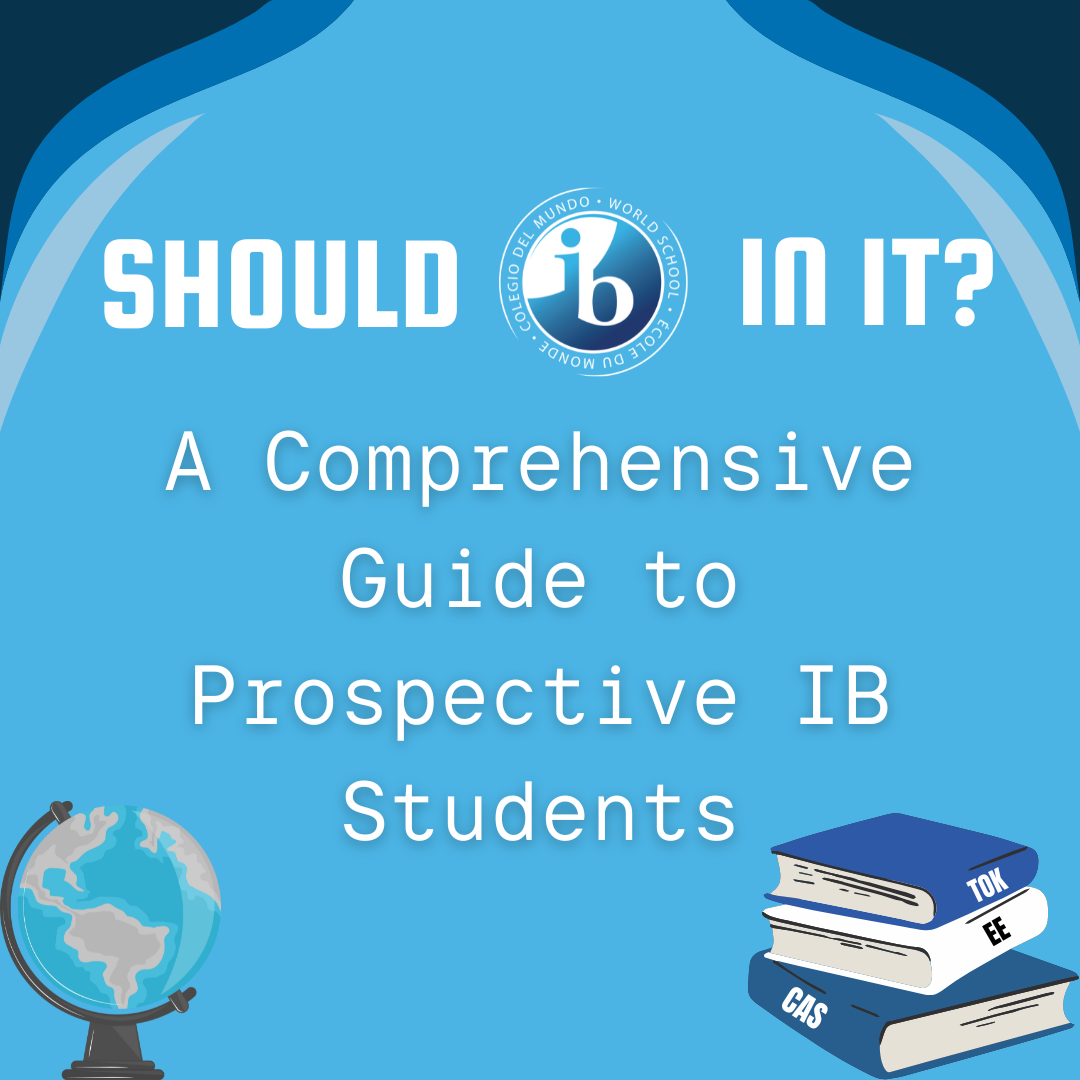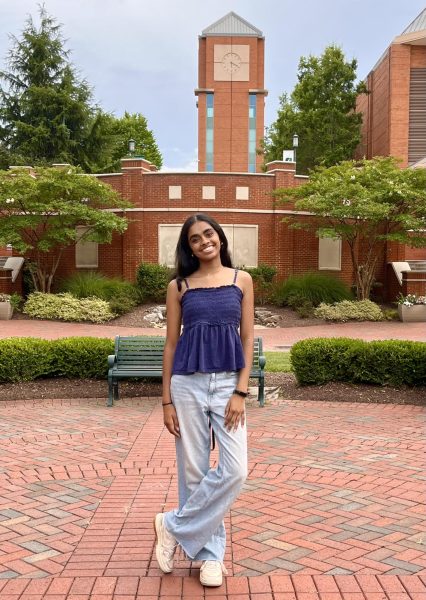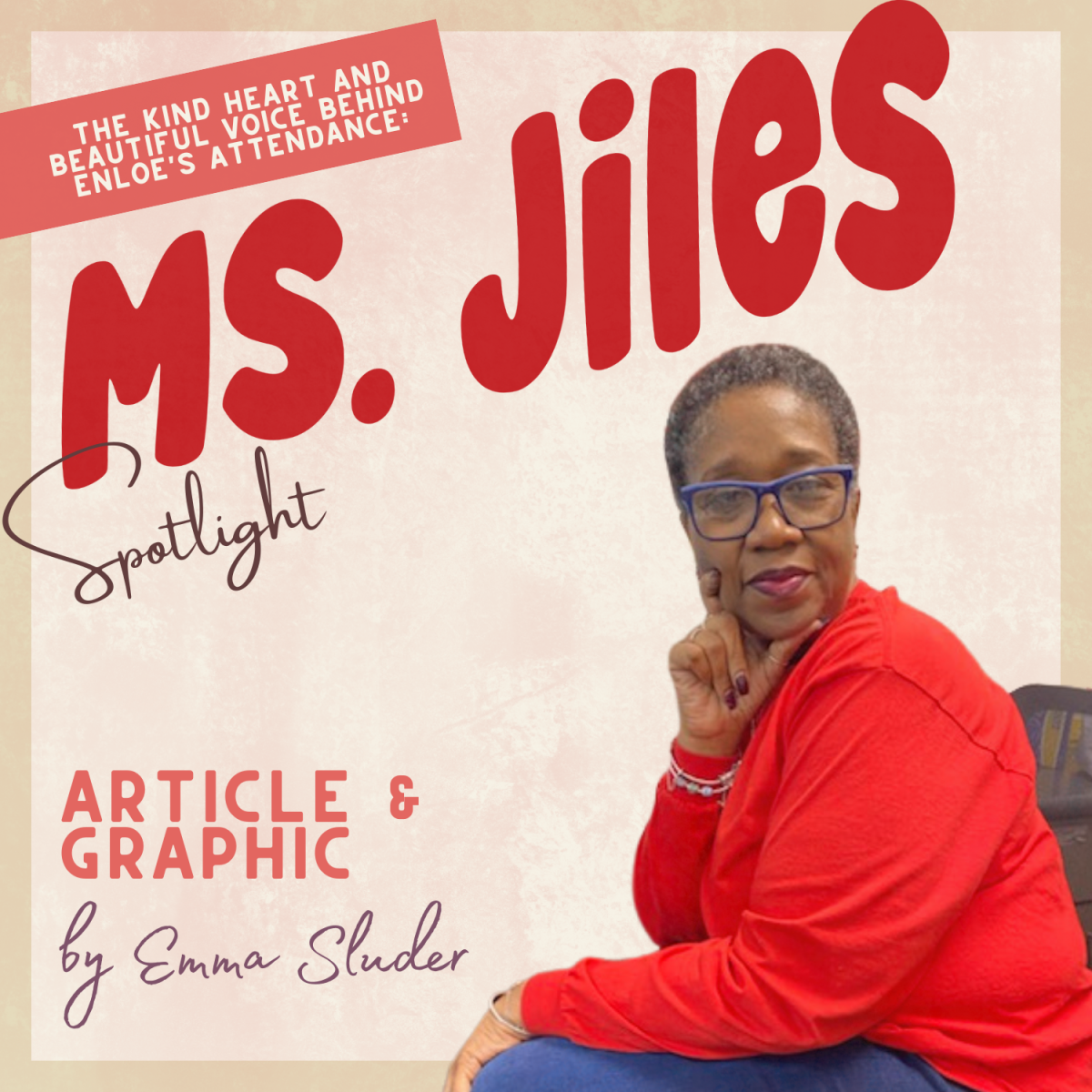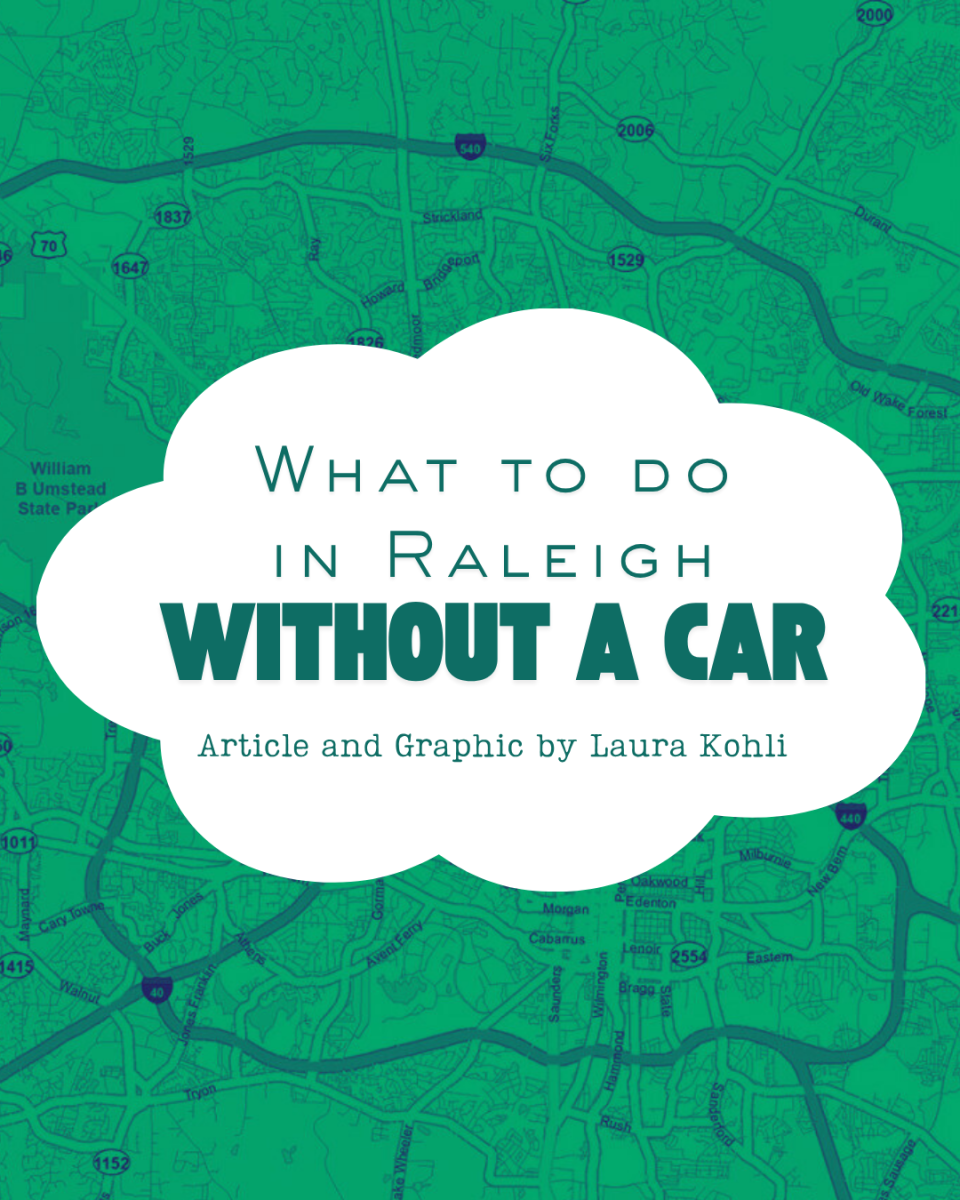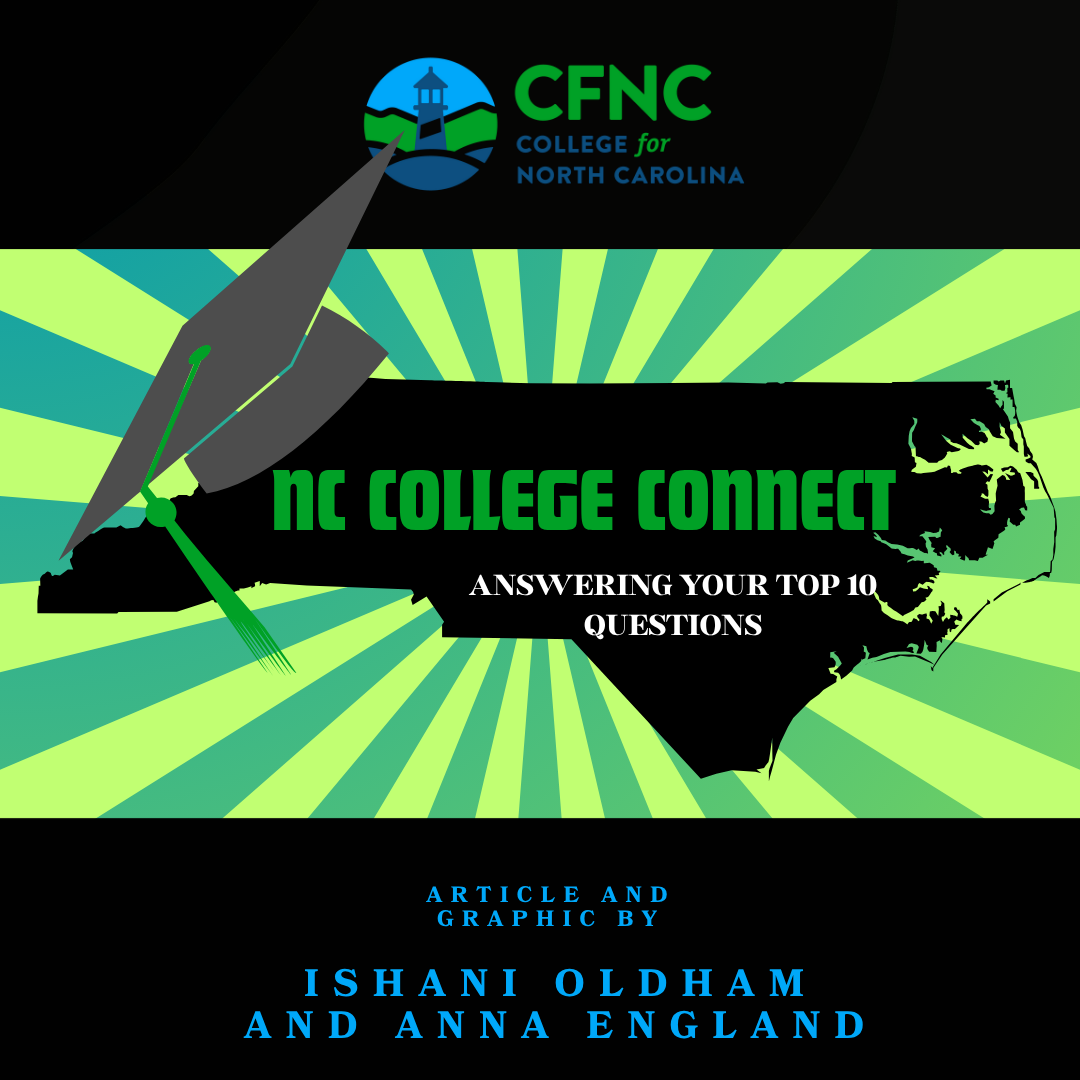The International Baccalaureate Diploma Program, more commonly known as the IBDP or IB, is a rigorous two-year-long pre-university curriculum for juniors and seniors in high school that prepares students to think critically and drive their own learning. There are over 1.95 million students in the IB program across more than 5,800 schools in 162 countries, and luckily for us Eagles, Enloe is one of them.
Students in the IBDP take courses and exams from the six groups of the program curriculum, which are studies in language and literature, language acquisition, individuals and societies, sciences, mathematics, arts, and the DP core (creativity, activity, service, or CAS; the extended essay; and Theory of Knowledge).
- The Internal Assessment (IA) is an investigation into a topic chosen by the student that contributes to their final subject grade and is evaluated internally by the school. IAs are a mandatory component of every IB class, ranging from oral work in the languages, fieldwork in geography, to lab work in the sciences, which is most common in our school.
- The extended essay is an independent piece of research, culminating in a 4,000-word paper that students complete over the two-year course of IB. In the extended essay, students develop an argument and support it with research in any chosen subject.
- CAS involves students in a range of activities alongside their academic studies. It is not formally assessed; however, students reflect on their CAS experiences as part of the DP and provide evidence of achieving the seven learning outcomes of CAS. In simpler terms, CAS is a form of service that Ms. Ellis assesses in the areas of creativity and activity.
However, the critical decision that sophomores have to make about whether or not to do IB can be a daunting one. Most sophomores and freshmen hear hundreds of differing opinions and perspectives from those who have been in IB, and what they suggest. But how do you know what to expect from IB? How do you know if you are right for the program? Will it really benefit you and your career moving forward? Continue reading to hear the honest opinions of our very own Enloe IB seniors, previously graduated IB students currently in college, and experienced IB faculty to decide if YOU should be in the IB program.
From our current IB seniors:
1. How is IB going for you right now?
Senior and stellar IB student Noe Roark explains that “fall semester [in] senior year is a little bit of a struggle … balancing IB, college apps, fall sport, and Charity Ball [is] a lot, but our teachers … are cognizant that we have a lot on our plates right now … and that’s helpful.” On the other hand, student Maria Cohen says that, “I really love my classes—they went well last year and they’re going well this year—so outside of the extended essay, everything’s going pretty well.” Similarly, senior Seph Caro is proud to say that, “right now it’s going great actually. Last year was a bit of a struggle because it was brand new. I did AP classes in my sophomore year, but IB is definitely a bit more difficult and more rigorous. Now I’m getting back into the swing of things, and so far I’ve been able to manage classes, research, and extracurriculars as well, so it’s not too bad.”
2. What are some pros of IB?
Collectively, the students agree that the IB program offers many benefits, including smaller, discussion-based classes and unique, in-depth courses (especially for humanities students) with opportunities for independent research through IAs and the extended essay. IB encourages critical thinking, self-directed learning, and freedom to explore personal interests, all of which colleges tend to view favorably. The students also appreciate the flexibility in scheduling and the engaging, globally focused curriculum that differs from traditional AP courses.
3. What are some cons of IB?
IB can be very demanding, with heavy writing requirements, numerous exams, and a tight schedule that leaves little room for electives or relaxation, especially during senior year. The workload can be draining and requires strong time management to handle deadlines for major projects like CAS and the extended essay. While teachers provide support, the program’s rigor means students must stay organized and proactive to keep up.
4. What have you learned from your IB experience so far?
IB student Parker Acree said that IB teaches students how to think critically and from different perspectives. You also learn to manage larger projects, like your extended essay. Similarly, Maria says that “IB forced me to get better at time management … [I learned] how I study best, how I manage myself best … and how to prioritize.” Seph also says that “critical thinking is a major component of IB … It’s never just facts, facts, facts … It’s very subjective, so being able to see things from other people’s perspectives is a huge thing in everything you do in IB. Even in science papers, you still have to look at other people’s thoughts and opinions on it, even if they’re different from yours. In [classes] like [Theory of Knowledge] and philosophy, there’s a lot of different thoughts spinning around, so you have to see how people think and analyze that.”
5. Would you recommend IB to underclassmen?
“I would recommend IB if you’re a student who enjoys writing, if you’re comfortable doing individual research, and if you’re someone who is willing to participate and speak up in discussions … Especially if you’re hoping to go to school internationally or want to live somewhere outside of the US … because it’s a lot more [of] a global program and you could get a better perspective for that,” Noe said. Similarly, Maria said, “100%. It’s been a very unique experience, and I’ve just really enjoyed it. It seems really scary from the outside because there’s a lot going on and there’s that big 4000-word paper, but at the end of the day, you’ll walk away feeling accomplished when you get the diploma, which is the best part.” Likewise, Seph said, “Yes, because a lot of the classes in IB do feel easier than AP, [and] you’re still getting the credit and you’re still learning the same things … we don’t have to take APUSH, which is really nice since it’s hard for juniors. Also, the teachers are very well-rounded… The way Ms. Ellis arranges everything … is in a really balanc[ed] way, making it a lot easier for students.”
From previously graduated IB students:
1. What was your favorite and least favorite part of IB?
Freshman at Rotterdam School of Management at Erasmus University in the Netherlands, Willem Koelewijn shared his experiences with the IB program at Enloe. “I noticed a really big change in the perspective of people who join IB … especially towards the end of the program … Everybody tends to have a gradual shift towards being more aware of others’ perspectives, which is invaluable … I’m glad I did it. It can be a lot of work … but it genuinely develops you in a really unique way … [so] it is worth it.” He said that his least favorite part about IB was that the “IAs are really helpful to learning work ethic … [but] it’s very tedious … and a lot of the time it’s done without students actually learning that much.”
Gianna Dick, freshman at UNC Chapel Hill, said that her favorite thing about IB was that “there was a huge sense of community because all of the classes overlapped and a lot of my friends were in the same classes.” However, her least favorite aspect was that “there was a lot of [work], at the end of senior year, especially. Just senior year in general, we [were] trying to finish the extended essay, then all of the IAs were due basically at the same time in the spring, so just trying to balance still having a senior year. I remember even after all the exams and summer had started, and we [were] still trying to send CAS in, so there’s just a lot of additional requirements that sometimes I think were not entirely necessary.”
2. What did you learn from your IB experience?
Gianna also said, “I think what I mainly learned with IB was how to approach things differently. I never considered myself to be a good writer all throughout high school … I just am not the best in the humanities department at all, but I think IB kind of taught me how to approach things more holistically and how to look at things through just different lenses. I use a lot of the skills I learned from IB even in college right now through UNC … it kind of taught me how to write in [a] way to consider [all] perspectives and then come to a conclusion based on that.”
3. Would you say IB was worth it?
Willem said, “Yeah, absolutely. There were some parts that I didn’t like, and that changed [my opinion] a little bit. Over the last few months, now that IB is over and getting to reflect on it, I think there [was] a lot of improvement.” Similarly, Gianna said, “It definitely prepares you for college … There are parts I do appreciate a lot and I’m happy I did it … I’m able to balance everything more now, and [IB] taught me a lot of study techniques on how to approach papers and how to structure everything … I’m really grateful for it, so it was worth it looking back on it. Maybe [at] the moment I didn’t think that … [but] I’m happy I got through it. It was really hard at the moment, but know your resources and how to ask for help. Not everything has to be perfect.”
4. Do you think doing IB was beneficial to your academic career right now?
In full honesty, Willem said, “I have friends who have done IB who are currently here, … and they are able to take college so much more seriously and [they’re] a lot more efficient.”
Gianna said, “There’s a very clear outline of how to do everything [in IB] and what they want from you. You were able to take different topics and write about them how you wanted to and in your own way of thinking, so that was nice. In college, there’s a lot of that as well … I know a lot of my friends now who did AP or even dual enrollment struggle with knowing what to say or knowing what to write.”
From our Enloe IB faculty:
1. What do you think students can learn most from IB?
Ms. Ellis, IB coordinator at Enloe for 19 years, answered that students can learn “Flexibility. They are rewarded for being curious, but what they learn along the way is how to be agile and figure out ‘how [to] best manage my time’, not just on one individual thing, but how you prioritize what is most urgent.” She also said, “[Time management skills] translate really well into college … the whole idea behind IB is that it’s a university preparation program. It sells itself to students by saying ‘You do this and we’ll make sure you’re prepared, not only to get into university, but to be successful once you get there.” Moreover, Ms. Turner, IB History of the Americas and Global Politics teacher, answered, “I think the most valuable thing about IB is the global aspect of it. Not just the fact that we learn about the world or about how things are interconnected, but global in terms of the emphasis on looking at everything from multiple perspectives and really not settling for the first answer, but always trying to go deeper and think about things from an open perspective.”
2. What do you think are the benefits of students being in the IB Program?
Ms. Ellis explained that the IB program “exposes students to both breadth and depth [because] it pushes you to take academic risks.” Unlike AP courses, where students “can pick and choose the subjects they want to focus on,” IB “demands balance across six disciplines,” requiring students to stretch beyond their comfort zones. “You study across subjects, even the ones you might not love—and that’s part of the challenge and reward,” she said. For many, this risk-taking becomes one of the program’s greatest lessons. Ms. Ellis also added that, “only 3% of Wake County seniors pursue the full IB diploma,” making it a distinctive academic achievement that “helps students stand out and access the schools they want to attend.”
Additionally, Ms. Turner explained that IB strengthens “a lot of basic soft skills” because you “have discussions and [learn] how to defend your opinions and thoughts on a topic.” She also says that “learning to collaborate” with others and recognizing “their strengths and weaknesses” is an important skill. She also mentions that IB has a “support system” because students are extremely willing to help each other with deadlines or difficult assignments.
3. How do you think IB prepares students for future career goals?
Ms. Turner explained that the IB program “helps students focus on actually learning and how to learn.” Through the extended essay and CAS projects, “IB trains students to pursue the goals they want.” She added that the program “pushes you outside your comfort zone,” preparing students to take risks in college and beyond. “That’s why we see so many IB students pursuing unique paths and doing great things; they’re empowered by it.”
4. How does IB help students who want to pursue their goals internationally?
Ms. Ellis said that “From an application admissions standpoint, the process to apply overseas is easier with IB. Since COVID, we have had more students every year who have been studying overseas, [so] it certainly makes that adjustment a lot easier … There is not a career out there that exists where you don’t have to collaborate with others, and IB certainly reinforces that. IB is constantly asking students to reflect on what they learned … [because] they want you to consider the value of what it is you are learning.”
Ms. Turner added that “IB is really valued, honored, and highly recognized in a lot of overseas schools, so students who do want to study internationally, just having an IB diploma gives them a huge leg-up. International schools see that, and they know that this student is a cut above the rest, because of the fact that they chose to take that path.”
Keeping all of these opinions and advice in mind, take your time in your decision. There is much value in choosing to pursue the IB program, but it ultimately depends on what YOU are interested in and what you want to get out of school. Ms. Ellis suggests, “You don’t have to be a straight-A student to be a successful IB student. Perfection is not the goal. You need to generally be an intellectually curious student about things. Be open to something different and be open to being better. IB can make you a better student of all sorts of things.” It’s also important to keep Ms. Turner’s advice in mind: “It’s a ride, but it’s a good one and it’s one where you’ll end up better than you were when you came in, regardless of what you do, which is important for people to know since they don’t always hear that.”


